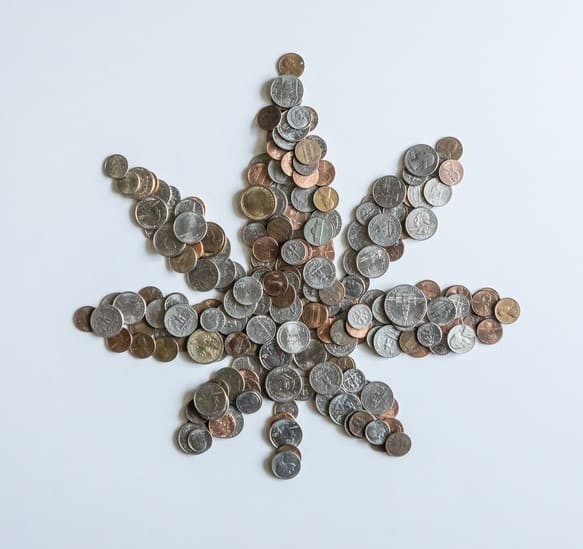The different definitions of the word “Moula”, or “Moulaga”
To begin, let's answer the question everyone is asking: What does the word Moula or Moulaga mean? Below, let's see in detail hows'uses the word "Moula" ( or Moulaga) in current common language and what are the different definitions given to it.
1. Moula means money
The most common meaning and close to its origin is money. La Moula is no longer, as it was originally, an illegal sum of money in cash... it's just money, one more designation among the many already existing (the pognon, the tune, the flooz, the sorrel , money etc.)
2. Moula also means cannabis
The word Moula also designates cannabis, notably through the texts of rappers like MHD, Hamza or Gradur.
3. The moula sometimes refers to people
Some use the word Moula to designate people, people around, the population in general, often in a pejorative way, as if to designate a mass of followers who cannot make decisions by themselves.
4. A moula is a “hot” person
A Moula can also refer to an attractive person due to their attractive physical appearance.
5. A moula is a humiliation
To put the moula also means to beat someone, to humiliate them in a fight, to surpass them.
6. Moula is a state of mind
Indeed, apart from the individual definitions that can be found, the expression “Moula Gang” has appeared. It is a state of mind of people with the same aspirations in life. The term is used by the singers of PNL, Ninho, Niska and even Damso.
This word continues to reinvent itself and we will not be surprised to see new meanings blossom according to the imagination of its inventors in the years to come.
The origins of the word Moula, brought by rap
As you probably suspect, the word moula is not an invention of the French language register. Its etymology comes, as is the case for many other words borrowed by the younger generation, from an American slang word “Mula”, “Moolah” or “Moollah”.
Moolah, the beginning in the United States
We don't really know how and by whom it was created, however, the word Mula has been used since the 1930s in the United States. Some attribute Spanish origins to it, while others speak of a Fijian origin.
One thing is certain, this mysterious word has an original and pleasant sound which will allow it to survive in American language and even to be exported thanks to a particular community: rappers and rap lovers.
Indeed, the term has been used by people in the rap world as well as rappers since the 1980s, notably with the American rapper Chuck Brown who used it in his song We need some money in 1987 where he says clearly that “we need Moolah to have fun”.
Since then, a large number of American rappers have incorporated the word into their lyrics, Lil Wayne even created his label Young Money Entertainment which he frequently nicknames "Young Moolah".
Widely used by rappers across the Atlantic, you will have understood that Moolah or Mula means for them a large sum of illegal and cash money. Quite precise in short, but language being a wonderful and constantly evolving tool, this word will please and develop different meanings with time and the imagination of users.
The second most important meaning given to this word is cannabis, and is used in advocating it.
The arrival of Moula in France
The first appearance of the word in France is a priori in 1995. It is the legendary Marseille rapper Akhenaton who uses it in the sentence “No more you die, I'm in the khouya dance, What for la moula-ia” from the song J’ai pas la face.
Subsequently, after disappearing for a few years, the word reappears in the song Caramel by Booba in 2012. Since then, the word has continued to spread like an epidemic and is now known to everyone.
The word has been used a lot in different contexts and has taken on many meanings and found a place in the glossary of singers from different backgrounds over the years.
Today in France, this word is on everyone's lips, on the radio and on TV, among adults of all social categories. It has become a trendy word that allows older people to take a step into the world of young people. In this context, the word moula is only used in the sense of money, especially by people not closely linked to the world of rap.
.jpeg)
The sociolinguistic impact of rap on the French language
Rap is undoubtedly an influential musical genre, but its impact is not limited to music alone. It has a profound influence on culture and language, particularly among young people. Indeed, many words and expressions have been introduced or popularized thanks to the lyrics of rappers.
Rap, as a form of expression, has often been a way for marginalized communities to give voice to their experiences, frustrations and aspirations. Thus, the language used in rap often reflects these experiences and is a mixture of slang terms, new invented words, and unique phraseology.
"Moula", like many other terms, found its way into common parlance through its popularity in rap songs. However, this is not the only term. Words like "Swag", "Thug" or even "Flow" were popularized by rap and have been adopted by speakers who are not necessarily familiar with the origin or initial context of the word.
Additionally, French rap, much like American rap, is known for borrowing and adapting words from other languages and cultures, creating a linguistic fusion. This adoption and adaptation of foreign terms is often a reflection of France's migratory history and cultural influences.
However, the adoption of these terms is not without controversy. Some language purists take a dim view of this “contamination” of the French language. Yet this simply shows that language is alive, evolving and constantly adapting to cultural and social changes.
Controversies surrounding the term “Moula”
The rapid adoption of the term “Moula” among young people has sparked various debates.
Media: The word's connotation with illegal money and cannabis has been widely debated, raising concerns about the influence of rap on youth and the normalization of cannabis use.
Education: Teachers are divided. Some see this jargon as an erosion of language, while others see it as a natural evolution of youth language.
Parents: Some parents are concerned about the potential negative influence of these terms, while others view them as simply a phase of youth culture.
Linguistic experts: They see the adoption of terms like “Moula” as an indicator of cultural and social changes, reflecting the constant evolution of language.
“Moula” is more than just a buzzword; it is a reflection of the tensions and transformations of current culture.
In conclusion, theth word“moula” or “moulaga” can have several meanings depending on the context or region. It can designate a sum of money, an important or respected person, or even a synthetic drug. The precise meaning will therefore depend on the context and the use of this word.
To find out more about the world of light and legal cannabis, consult our 321CBD blog with other articles on the subject.
Also read:








